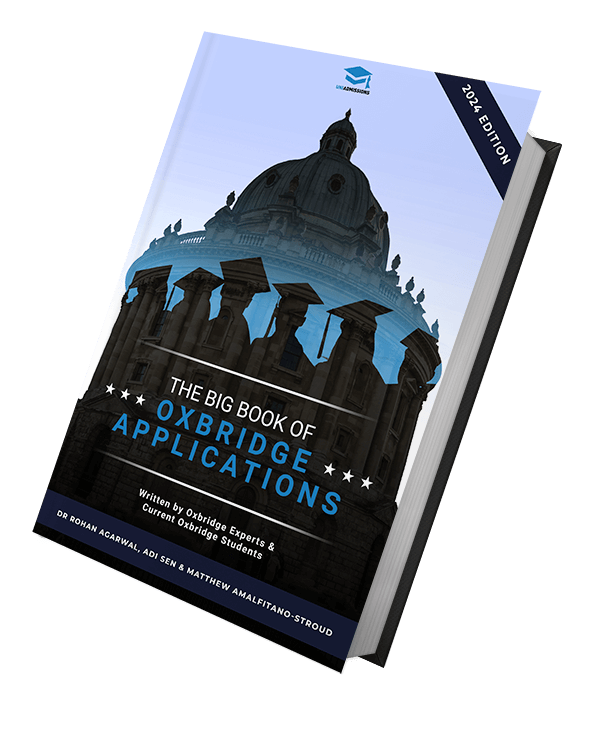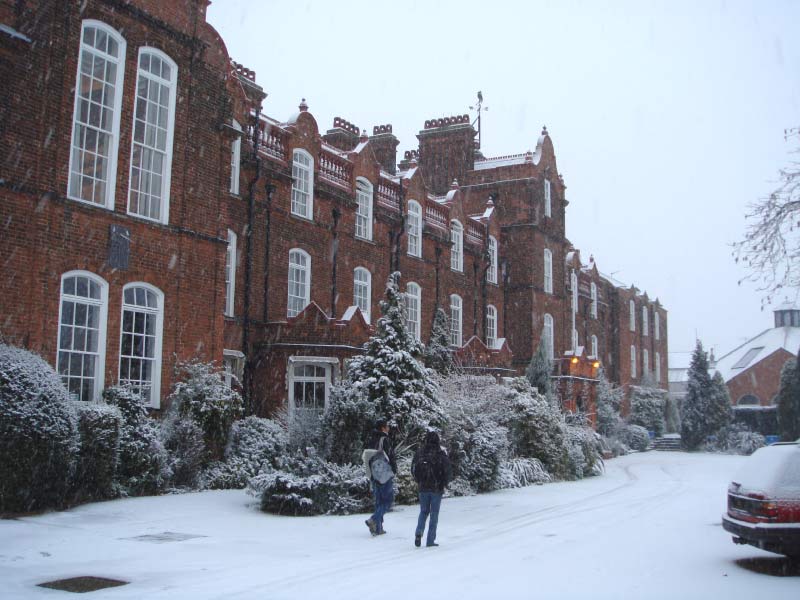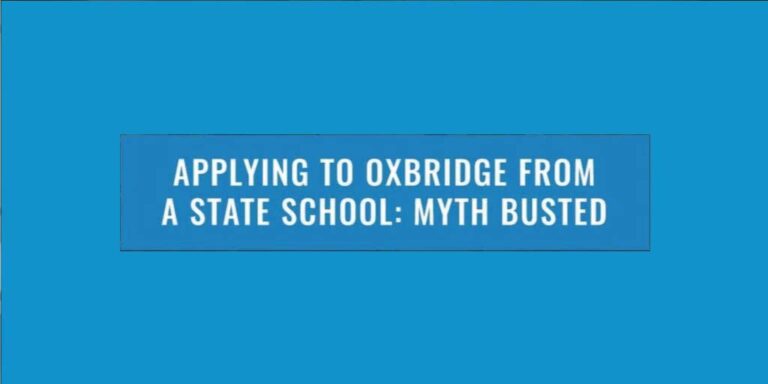With 540 mature students studying their first degree at Cambridge, and hundreds more at Oxford, what is life really like as a mature Oxbridge student and how do you apply?
Brendan, a mature student studying Law at Hughes Hall, Cambridge writes about his experience as an Oxbridge mature student and answers all of your burning questions about university life, the application process, international students, funding and much much more.
Who does Oxford and Cambridge class as mature students?
Cambridge Mature Students
A mature student is defined by Cambridge as a prospective applicant who is “aged 21 or over by the 1st of October in the year in which they hope to come to Cambridge and they haven’t already completed a higher education course.”
Oxford Mature Students
Thus, for those enjoying the mature student title, you may be relieved that if you start university after 21 and take a postgraduate soon after, you would more likely than not be once mature, always mature!
While there is some degree of inconsistency across the definitions of ‘mature student’ above, you will be relieved to find out that the classification has no direct implications on your application. Mature students are allowed to apply like a ‘non-mature’ student fresh out of Sixth Form.
They take the same Admissions Tests and Interviews and join their ‘less mature’ counterparts in their supervisions/tutorials (we’ll cover more on this later). One difference, however, is that there are ‘mature colleges’ that exclusively accept mature students which we will explain in more detail later on.
You might be wondering whether mature students are treated differently, we mentioned that the classification has no direct implications on your application, but there are definitely indirect ones elsewhere.
Are you considering applying to Oxford or Cambridge as a Mature Student?
Our expert Oxbridge tutors provide the support you need to gain your dream place. How? We help you craft the perfect Personal Statement, achieve a highly competitive Admissions Test score and teach you how to Interview effectively – covering all areas of your Oxbridge application.
Discover our Oxbridge Premium Programmes by clicking the button below to enrol and triple your chances of success.
What is life like for mature Oxbridge students?
We would call the following implications ‘indirect’ because they stem not from Oxbridge’s treatment in the application process, but from the circumstances that typically surround mature students. Mature students may have much more commitments than a student fresh out of Sixth Form, as they may have a spouse and children or other family members to support.
They may also be running a business on the side with a different social circle, filled with people at a different stage of life, and may find it challenging (though no less rewarding) to converse and socialise with starry-eyed ‘youngsters’ who are only just beginning to taste independence. To mitigate the effects of these indirect implications, Oxbridge often provides some support, usually via the colleges.
Some of these supports may fall under the heading of:
Accommodation
Oxbridge Colleges recognise the need for mature students with a family to have a suitable and sufficiently private space to grow as a family. This is even more crucial when mature students study with children, as the location must be a suitable one for child development.
My college, Hughes Hall, meets this need by designating a certain number of units as “couples flats” that are nearby one another for mature students with spouses and families to stay in. These units are within the college grounds, allowing mature students with families to be connected to the community while having sufficient privacy. Of course, if mature students with families feel like they rather have privacy exclusively, there are many offsite houses available for rent, whether it be through colleges or private landlords.
Extra-Curricular Activities
Mature students may find themselves having different hobbies from the younger students. By this, I am not assuming that mature students require their own exclusive “wine tasting” club where the entry requirement is the wearing of a top hat and monocle. Hobbies tend to differ with age, and Oxbridge Colleges want to recognise this so that mature students feel as much a part of the community as possible.
Some extracurricular activities Hughes Hall have are socials meant for students with children (more often for postgraduate mature students but undergraduate mature students are also welcome). For colleges that do not have an exclusively mature student representation, there is a student representative body called the Senior Combination Room (SCR) which represent mature undergraduates and postgraduates in college matters, and not to mention allocate a stunning room to act as headquarters/social space. For example, take a look at St Catharine’s SCR room that boasts “stunning views over the College’s Main Court.”
External clubs and societies at Cambridge also have events specifically catered for mature students. For example, the Cambridge University Matured Student’s Society, the Graduate Union under the Cambridge Student Union or the Christian Graduate Society. Each society meets some or all of the respective needs of mature students scoping representation, academics and pastoral support.
Working
When it comes to working alongside your degree, unfortunately, the support at Oxbridge is not great. The policy of both Cambridge and Oxford is that undergraduate students are not allowed to work during term time. This is because the terms are shorter in Oxbridge – 8 weeks as opposed to the traditional 11 weeks – which means that students need to allocate a large number of hours for study and revision.
From an experiential point of view, this is a good thing as mature students can truly feel like students, honing in all their energy on their academics with less worry about the future. It would be a good ‘sabbatical’ of some sorts for those who have spent the past few (or many) years working. However, from a financial point of view, this means that one would have to rely on student loans, parental help or an external source of funding to survive your university days.
Thus, mature undergraduate students need to properly evaluate whether they want to make the financial commitment before going to university, especially so if you are an international mature student like myself.
Postgraduate students have it slightly better, with more scholarship opportunities available as well as more chances to work during term time as research assistants or supervisors of certain undergraduate modules. Postgraduate mature students are strongly advised to make the best use of these opportunities, not just for finance purposes, but for an opportunity to truly feel part of the intensely motivated and forward-looking academic community that is Oxbridge.
Should I go to a mature college?
As students may well know, in Oxford and Cambridge, you are required, in addition to applying for the university, to be a member of one of the many distinctive colleges. In the course of surveying colleges, one might come across “mature colleges”, but do not let your first thought be that of brick-walled buildings with well-aged mould growing through the crevasses. Mature colleges are colleges that admit membership to those exclusively 21 and are few in comparison to other colleges.
For example, in Cambridge, there are only three colleges namely St Edmund’s, Wolfson and Hughes Hall (mine!). In Oxford, there is only one mature college by the name of Harris Manchester.

Studying at a mature college carries some obvious and some less obvious benefits:
- Better overall behaviour. You will less likely have to deal with 18-year-olds going wild at the first chance of independence. By this, I mean less chance of a 'puke party' at late hours of the night with the result of receiving disciplinary actions the very next day – yes this actually happened.
- Better age diversity. There is never a fixed time to commence studies when it comes to mature students. I’ve even met and interviewed, as part of a college initiative, a 60-year-old man and grandfather at our college to do an MPhil.
- More diverse life experience. This is a corollary of the earlier point. I’ve met various people who have done various things in their years before Hughes Hall, like work as a hotel manager, finance associate and in construction!
- Varied exam timetables. Mature students are often mostly postgraduates and this would mean the nature of their deadlines are different from the typical undergraduate Tripos. This is especially useful if you do not want an over-cautious but well-meaning college mate reminding you how soon Tripos examinations are.
- Treatment as an adult. I had just turned 21 when I joined Hughes Hall - at the border of the mature student categorisation, so I was delighted to be treated by the management staff as an adult, particularly in the way we discuss my academic progress and settle conflicts together. I enjoy camaraderie with a porter probably twice my age who provides pastoral support with me as an equal.
There are of course some disadvantages:
- Missing out on the undergraduate culture. If you have not done a prior undergraduate degree, you will miss out on the undergraduate life to some extent being in a mature college. This does not bar you from meeting undergraduates in external clubs and societies, however.
- Being at the crossroads of independence. This is a dilemma faced by students who apply for undergraduates and get pooled into mature colleges. Other than the fact that it is never immediately fun getting your second choice, a person over 21 may still face the same challenges as an 18-year old and would want similar tutorial support. For example, those who can only begin their undergraduate course at 21, due to mandated national service (such as in Singapore and Cyprus), may not yet feel like they need the postgraduate atmosphere but want a taste of the undergraduate life.
- Less fame. We know this is a fairly superficial concern! The more well-known and long-established colleges tend to be undergraduate colleges like Trinity or St John’s (both the Cambridge and Oxford counterparts), which are more famous than the aforementioned mature colleges. Always, choose a college that is suitable to you rather than sounding nice to others.
Access "The Big Book Of Oxbridge Applications" For FREE
Set on Oxbridge? Discover everything you need to know about the application process in The Big Book Of Oxbridge Applications, available for free here! Over 350+ pages, you’ll learn about about everything you need to know, as well as:
- 28 example Oxbridge Personal Statements
- Over 40 admissions test practice questions
- Interviews with Oxbridge students and graduates
- Additional downloadable resources
Fill out the form below to claim your digital copy today!

International Mature Students
Now a section for those who face a double whammy of culture shock, starting university in a different country in addition to doing so at an age later than most. International mature students are those who often do so by choice or by circumstance. Those who do so by choice share a similarity with local mature students, choosing to begin or continue education at a later stage in life. I fall into the former category, switching fields from Accounting to Law.
However, some international students do so by circumstance. For instance, national service mandates from respective governments or being pooled into a mature college, thus being indirectly forced to take a gap year. The latter is particularly true for students from my home country Malaysia. Many of us complete our A-levels at 20 years old (as opposed to the typical 18) and end up getting pooled into mature colleges and then having to wait a year before we can begin our course at Cambridge.

For international mature students, having a community to identify with is particularly important. Don’t let your age categorisation, especially if you were made a mature student at a mature college by circumstance, make you feel out of place. Studying is a lifelong endless journey which by definition, has no ‘correct’ age to begin.
In fact, as international mature students, you may find it easier to get along with other mature students, since your respective past experiences may involve activities like travelling to another country, or taking a short course in another language and holding conversations with people of other backgrounds and cultures. I felt very welcomed as an international mature student, even after they asked the taboo question that is my age (and knew not to comment further)!
Entry Requirements and Funding For Mature Students
For entry requirements, mature students will be relieved to know that “the application process for mature students is the same as that for standard-age students.” However, there are some broad exceptions, some to your favour and others a tad bit inconvenient.
Later Deadlines For Oxbridge Applicants
The three Cambridge Mature Colleges: Hughes Hall, Wolfson and St Edmund’s consider mature students as part of a second application round (for some but not all subjects) with a deadline of 1st March, the following year, in addition to the first application round, which is much more generous than the 15th October previous year in the first application round.
More Recent Qualifications
Oxford and Cambridge also require your qualifications to be recent. Cambridge expects prospective mature student applicants to “demonstrate evidence of recent academic achievement (usually within two years of applying) at a high level”, while Oxford similarly needs “to see academic qualifications in the past 3 years.”
Cambridge explains that this is due to the nature and demands of the courses and the requirement to produce independent work every week, and Oxford has a similar view. Oxford also makes it clear that while tutors will take into account work experience and life skills to assess your ability to work independently to meet the high demands of the course, work experience will not replace direct evidence of your ability to succeed in a formal learning environment. In short, formal academic qualifications completed recently are needed.
It is not all intimidating though, as the admissions process assesses your abilities now, rather than the 18-year-old you. You, therefore, have a significant advantage over your 18-year-old self and other 18-year-olds.
Oxbridge Advice For Those Long Out Of Study
For those that took several years out of study, both Oxford and Cambridge expect you to take a further qualification, like an Open University Course or an Access to HE Diploma. It appears that both universities do not tier the formal qualifications in any meaningful way and require these qualifications simply as a refresher in anticipation of the Oxbridge workload. In other words, they want to make sure your mental gears still turn.
Thus, do not let the fear of a lack of or very outdated formal qualifications put you off. If you have good grades in outdated qualifications, go for it. Otherwise, there are great opportunities available today to get formal online qualifications such as Coursera or LinkedIn Learning. Pair that with the work/life experience you have to convince the Oxbridge tutorial committee that you can handle the workload.
We hope this guide has cleared up some of the uncertainty you may have had regarding mature applications at Oxbridge. If you feel that attending Oxford or Cambridge as a mature student is right for you, then we wish you the very best of luck with the application process and are here to help if you need any more support, either through our library of free guides or through our Oxbridge Preparation Programmes, which cover over 30 different Oxbridge courses.
Looking for effective Mature Student Application Support to receive your dream offer from Oxford or Cambridge?
We help you craft the perfect Personal Statement, achieve a highly competitive Admissions Test score and teach you how to Interview effectively – covering all areas of your Oxford or Cambridge application, from History to Medicine.
Discover our Oxbridge Premium Programmes by clicking the button below to enrol and triple your chances of success.







